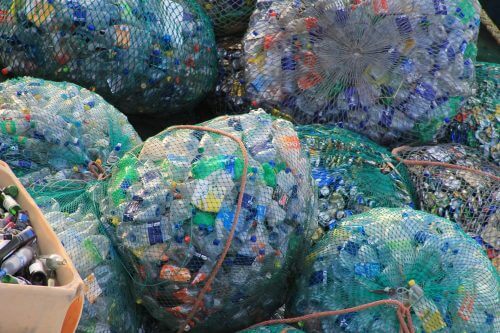Chemists from the Massachusetts Institute of Technology (MIT) have succeeded in developing a method to modify thermoplastic plastic materials using a chemical binder while making them easier to unload, while still retaining the mechanical strength that makes them useful lacquers.
[Translation by Dr. Nachmani Moshe]

Thermoset polymers (polymers that do not melt in heat), which include epoxides, polyurethanes and rubber used to make tires, are found in many products that require great stability and resistance to heat, such as vehicles or electronic devices. One of the disadvantages of these materials lies in the fact that they usually cannot be recycled or easily discharged after use, since the chemical bonds at their base are stronger than those found in other materials, such as thermoplastic materials. As part of a study, the results of which were published a long time ago in the prestigious journal Nature, the researchers showed that they were able to make a biodegradable version of a thermoset plastic called pDCPD, break it down into a powder form, and use that powder to make more pDCPD. The researchers also proposed a theoretical model describing how their approach could be applied to a wide variety of plastics and other polymers, such as rubber. "This research reveals a fundamental design principle that we believe is applicable to any type of thermoset material with this type of structure," says Jeremiah Johnson, a professor of chemistry at the research institute and lead author of the paper.
Thermosetting materials are one of the two main types of plastics, along with thermoplastic materials. Thermoplastic materials include polyethylene and polypropylene, polymers used to make plastic bags and other single-purpose plastic products such as food wrappers. These materials are produced by heating small balls of plastic until they melt, then shaping them into the desired shape and cooling the resulting product back to a solid state. Thermoplastic materials, which make up seventy-five percent of all plastic produced in the world, can be recycled by reheating them until they become a liquid, after which they can be reshaped into a different shape. Thermoset plastics are created by a similar process, but once they are cooled and go from a liquid state to a solid state, it is very difficult to return them to a liquid state. This is in light of the fact that the chemical bonds connecting the polymer molecules are strong chemical bonds called covalent bonds, which are difficult to break. When the material is heated, a thermosetting polymer will usually burn before it can be reshaped, explains the lead researcher. "From the moment they are shaped in a defined way, these polymers are fixed in this form for the duration of their existence", explains the researcher. "Usually there is no simple method to recycle them". The researchers wanted to develop a method that is able to preserve the properties of thermoplastic plastic - its strength and stability - while it can be unloaded more easily after use.
The researchers report finding a method to create free polymers for drug transport, by introducing special building blocks, or monomers, that include a silyl ether group in their structure. This monomer is randomly dispersed within the material, and when it is exposed to acids, bases or ions (fluoride) the silyl ether bonds break down. By using this method, the researchers added silyl ether-based monomers to the liquid starting materials used to make the finished polymer. The researchers found that these monomers make up between 7.5 and 10 percent of all the components of the material, so that the polymer still maintains its mechanical strength, and at the same time can be dissolved into a soluble powder following exposure to fluoride ions. "The result of our method was particularly exciting," says the lead researcher. "We managed to prepare a freak polymer without damaging its useful mechanical properties."
In the second phase of the study, the researchers tried to reuse the powder created from the discharge process in order to make the same original polymer. By dissolving the resulting powder in the starting solution, they were indeed able to create the desired polymer. "The new material obtained has mechanical properties that are almost indistinguishable, and sometimes even improved, compared to the original material," said the researcher. "The ability to utilize the discharge products and re-produce the same thermoset polymer again and again through a fixed process is a fascinating finding." The researchers believe that this general approach could be applied in other areas of the chemistry of thermosetting materials. If the appropriate free monomers can be found for other types of polymerization reactions, this approach could be used to prepare free versions of other thermosetting materials such as acrylics, epoxides, silicones or vulcanized rubber, explains the lead researcher.
More of the topic in Hayadan:

4 תגובות
I wish, from scientific research to the market and then to mass use, the distance is great. The best is to reduce at the source. Do not use nylons, give up non-biodegradable disposable dishes and more.
This article basically says that the plastic recycling problem is almost solved and most types of plastic can be recycled.
So actually the plastic is no longer to blame, and from today it is better to write articles about a correct recycling policy, and a drastic consumption reduction policy.
Interesting, thank you very much!
Sensational and optimistic news..
Recycling is the name of the game in our resource-depleting world.